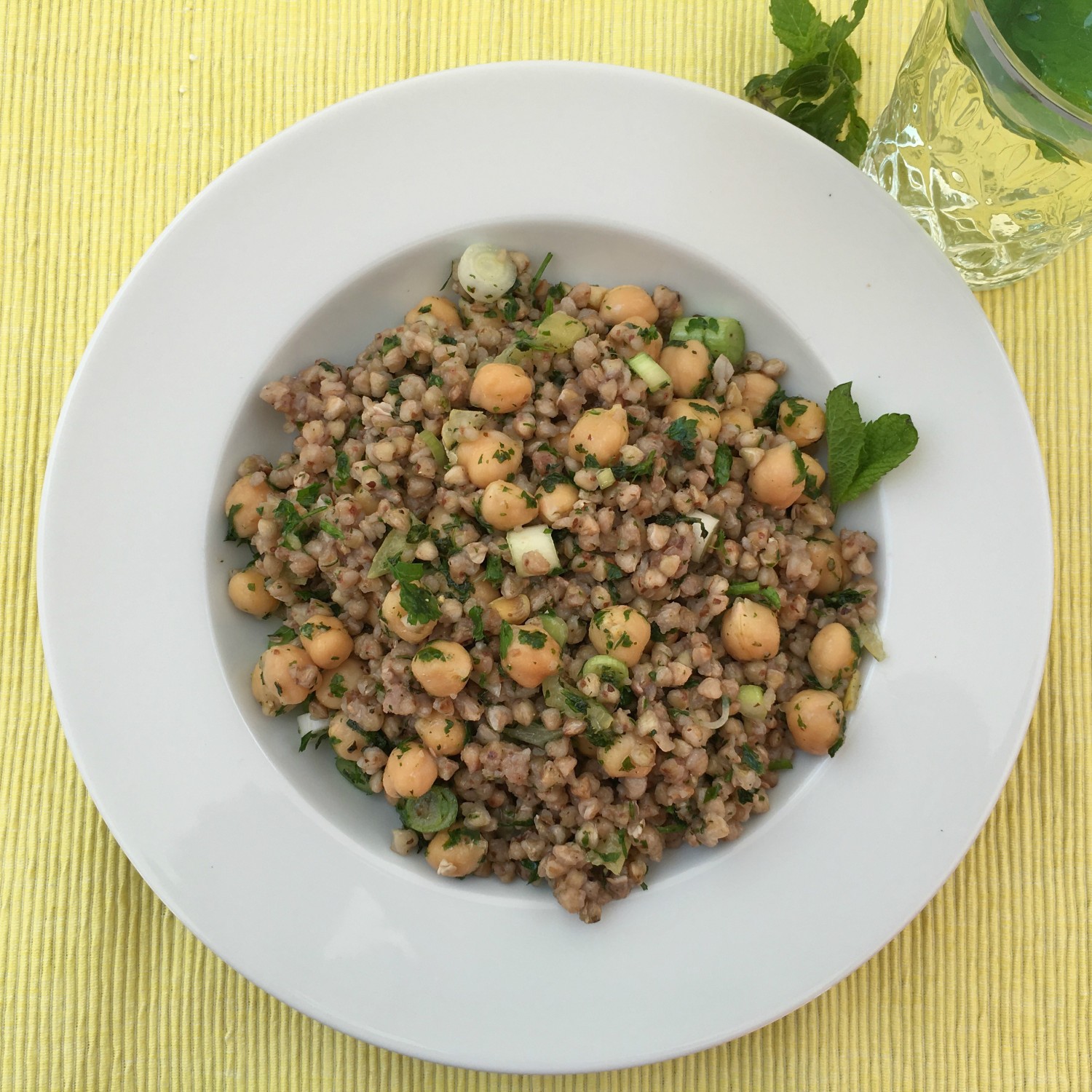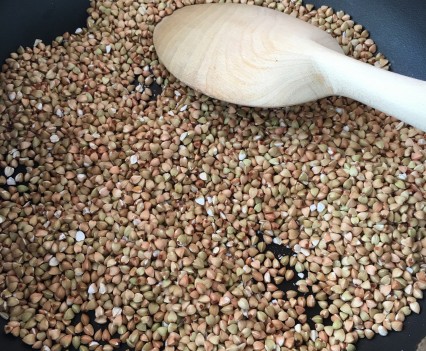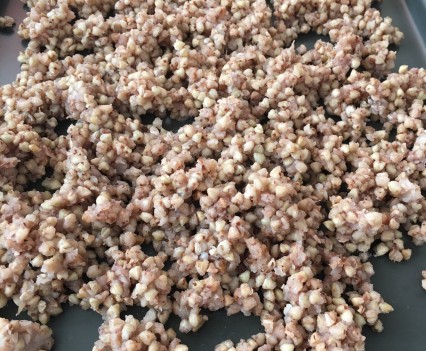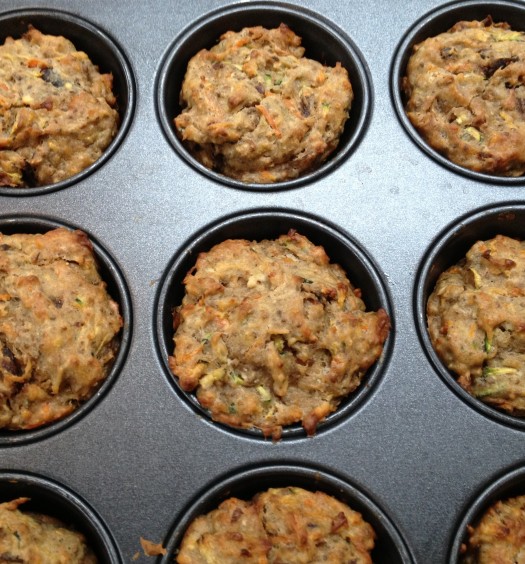Heart Healthy, Hormone Balancing and Digestive Friendly
This gluten-free, lemony buckwheat tabbouleh recipe is perfect for a quick lunch. It’s also heart healthy, supports hormone balance and is digestive-friendly. I make the full four portions and am very happy to munch on leftovers for lunch for the rest of the week or as a mid afternoon snack (and I’ve even been known to tuck in when I’ve been short of time at breakfast).
Buckwheat is one of those grains I used to read about, buy a packet, and then throw away once it had sat at the back of the cupboard for a year or so. And then I’d start the cycle again. I’ve been a slow adopter of buckwheat, but I now have several recipes that i know work – one of which is this amazing tabbouleh. Others include crunchy ‘buckwheaties‘ (soaked and dried buckwheat groats) to top yogurt or pancakes with, our blueberry, pecan and cinnamon granola (on our app) and our addictive chocolate orange recipe.
It took me quite a while to realise that buckwheat isn’t actually a grain – but rather the seed of a fruit, which is why it is gluten free.
Heart Health
Buckwheat is just packed with antioxidants, including a flavonoid called rutin. In combination with other phytonutrients this helps to encourage cardiovascular health protecting LDL from oxidation and discouraging platelet clotting. Buckwheat is also a good source of the antioxidant mineral manganese as well as copper and magnesium, aiding relaxation and helping to lower blood pressure.
Buckwheat additionally contains a compound called D-chiro-inositol, which in various studies has been shown to lower blood sugar levels and help our cells to be more sensitive to insulin; diabetes and insulin resistance are both risk factors for cardiovascular disease.
The combination of fibre, powerful antioxidants and heart-healthy olive oil, makes this a really great recipe to introduce if you’re trying to give your cardiovascular system a little TLC.
Hormone Health
Buckwheat and chickpeas both are good sources of lignans – compounds that are helpful to hormone levels – reducing oestrogen if too high, and raising it if too low. Lignans may be helpful in reducing the risk of hormone related cancers such as ovarian, breast and endometriol. Adding a tablespoon of flaxseeds or sesame seeds on top of the salad will significantly boost lignan content.
Digestive Friendly
Buckwheat is far easier to digest than gluten, but other elements in the recipe also aid digestion.
I love the taste of preserved lemons but they also serve a purpose; they’re a fermented food so our gut LOVES them – they act as a probiotic, in a similar way to the daily capsules many of us take. You can find preserved lemons in most supermarkets as jars of whole lemons, or as a preserved lemon paste (they’re equally easy to make yourself by immersing halved lemons into a jar of brine).
The spring onions act as a prebiotic food – helping to ‘feed’ the good bacteria (probiotics) in our digestive tract, and the mint helps to soothe and calm the digestive tract, reducing indigestion and raising bile flow (to help digest fats).
And the overall fibre content of the recipe helps to get the bowels moving!
In summary
This whole buckwheat tabbouleh is just stuffed full of good things – and it just feels like you’re doing your body good when you’re eating it.
And that’s without even going into detail about the chlorophyll and Vitamin C from the parsley, monounsaturated fats and beneficial polyphenols from the extra virgin olive oil, and yet more high antioxidants (and blood sugar balancing capacity) from the sumac – a middle eastern spice (also found in the supermarket) made of ground and dried berries, which has a lemony tang.
It’s quick to make and literally has to be my favourite way to eat buckwheat.
It’s also a great salad to include on a detox programme.
Toasting the buckwheat before using adds a nutty taste and it helps to hold it’s shape more when cooking; if you buy kasha, that’s buckwheat already pre-toasted so skip the dry-frying of the groats.
We hope you enjoy this blog post, let us know your thoughts in the comments below or on social media – we’re on Twitter, Facebook, Instagram and Pinterest. And don’t forget to sign up to our newsletter to receive a monthly update of our recipes, nutrition tips and expert advice.
- 6 spring onions
- 1 cup buckwheat groats
- 1.75 cups water
- 1 can chickpeas drained
- 1 pack parsley 30g pack
- 20 mint leaves
- 1 preserved lemon chopped; or substitute 1 tbsp paste
- 1 tbsp sumac
- 1 tbsp lemon juice
- 2 tbsp olive oil extra virgin
- pinch black pepper freshly ground
- pinch sea salt Himalayan or Seagreens if available
- Toast the buckwheat grains in a dry pan for 4-5 minutes, until golden. If your buckwheat is labelled 'kasha' then skip this step (it's already toasted).
- Add the buckwheat to a saucepan with the water. Bring to the boil and then reduce heat, cover and simmer for 15 mins until the water is absorbed.
- Remove the buckwheat from the pan and put onto a baking tray or large plate in single layer and leave to cool until the buckwheat is approximately room temperature. Cover and store in the fridge (unless you're in a rush - this also tastes great as a warm salad!)
- While the buckwheat is cooling, finely chop the preserved lemon, herbs and sping onions.
- Mix lemon, herbs and spring onions into the cooled buckwheat together with the sumac and drained chickpeas.
- Whisk the lemon juice with the olive oil and stir through the buckwheat tabbouleh. Add freshly ground salt or seagreens and pepper to taste.








